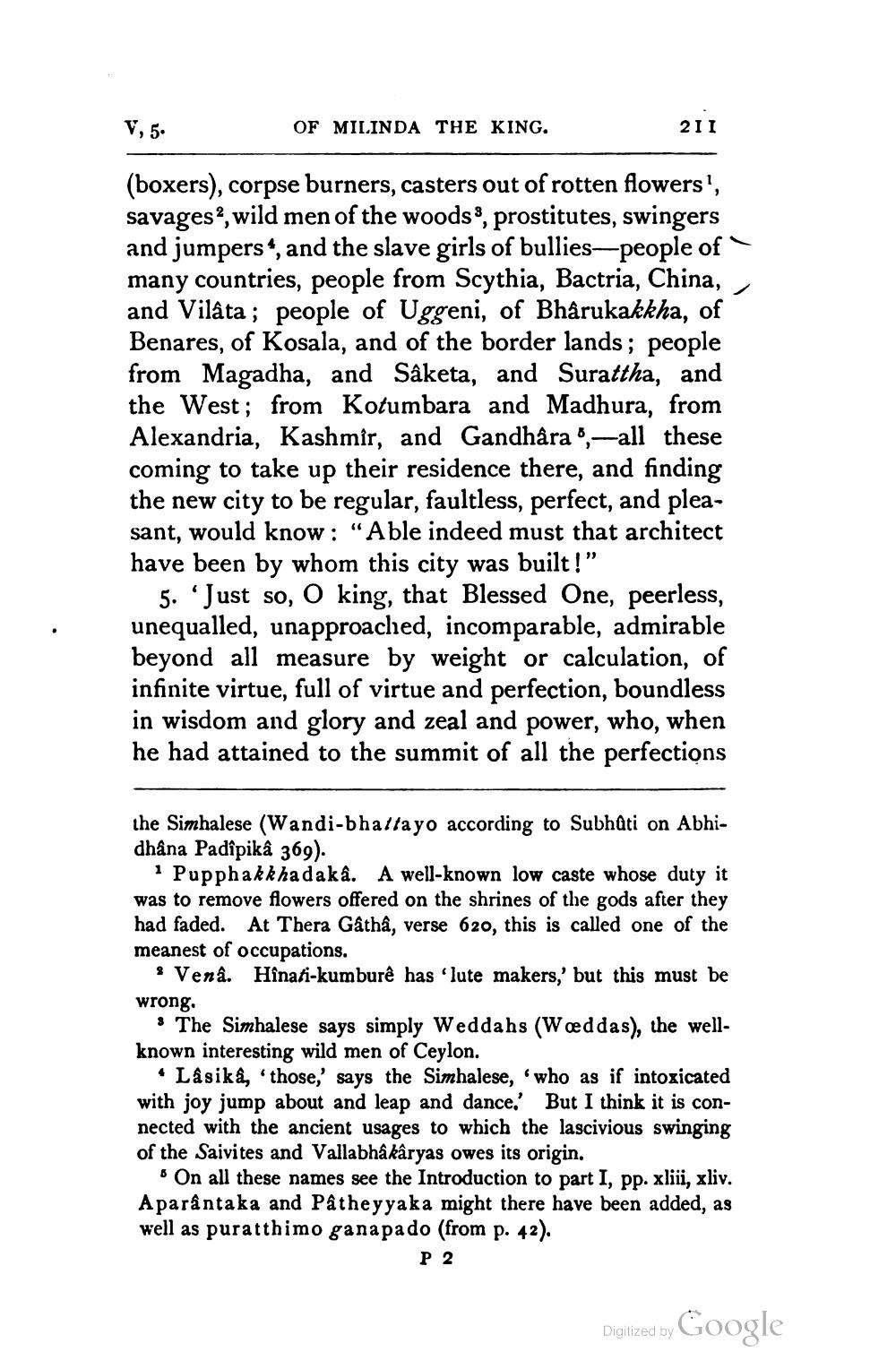________________
V, 5.
OF MILINDA THE KING.
211
(boxers), corpse burners, casters out of rotten flowers', savages?, wild men of the woods, prostitutes, swingers and jumpers“, and the slave girls of bullies—people of many countries, people from Scythia, Bactria, China, and Vilâta ; people of Uggeni, of Bharukakkha, of Benares, of Kosala, and of the border lands; people from Magadha, and Säketa, and Surattha, and the West; from Kotumbara and Madhura, from Alexandria, Kashmir, and Gandhåra ',-all these coming to take up their residence there, and finding the new city to be regular, faultless, perfect, and pleasant, would know: "Able indeed must that architect have been by whom this city was built!”
5. 'Just so, O king, that Blessed One, peerless, unequalled, unapproached, incomparable, admirable beyond all measure by weight or calculation, of infinite virtue, full of virtue and perfection, boundless in wisdom and glory and zeal and power, who, when he had attained to the summit of all the perfections
the Simhalese (Wandi-bhattayo according to Subhâti on Abhidhâna Padîpikâ 369).
· Pupphakk hadakâ. A well-known low caste whose duty it was to remove flowers offered on the shrines of the gods after they had faded. At Thera Gåthâ, verse 620, this is called one of the meanest of occupations.
• Venå. Hînati-kumburê has 'lute makers,' but this must be wrong.
* The Simhalese says simply Weddahs (Wæddas), the wellknown interesting wild men of Ceylon.
• Låsika, those,' says the Simhalese, who as if intoxicated with joy jump about and leap and dance.' But I think it is connected with the ancient usages to which the lascivious swinging of the Saivites and Vallabhâkâryas owes its origin.
On all these names see the Introduction to part I, pp. xliii, xliv. Aparantaka and Patheyyaka might there have been added, as well as puratthimo ganapado (from p. 42).
P2
Digitized by
Digitized by Google




